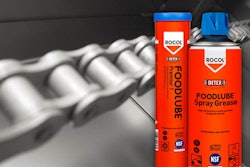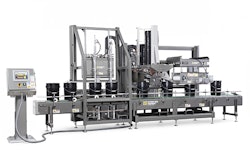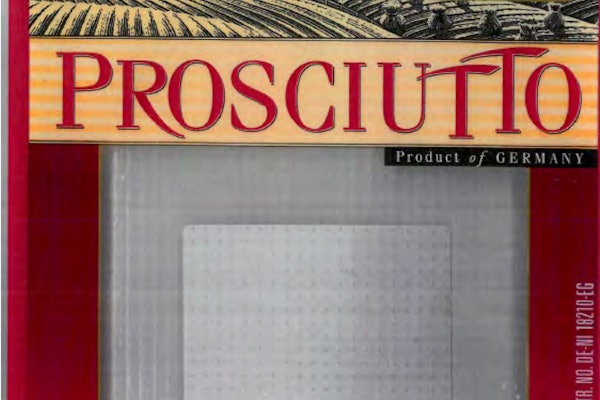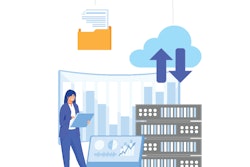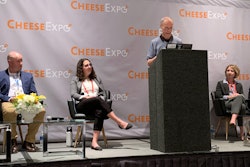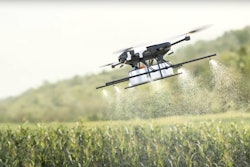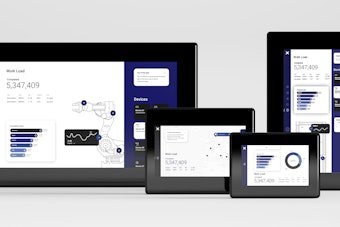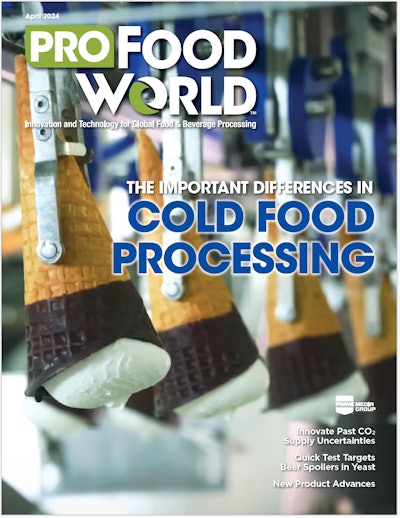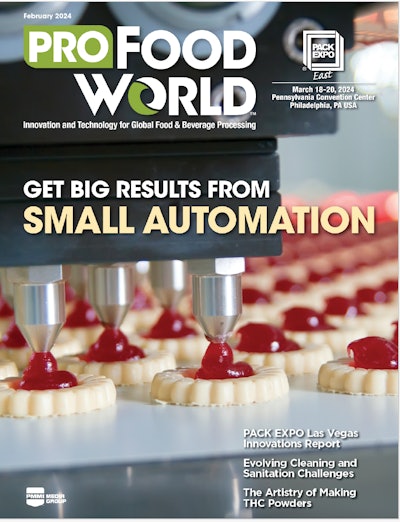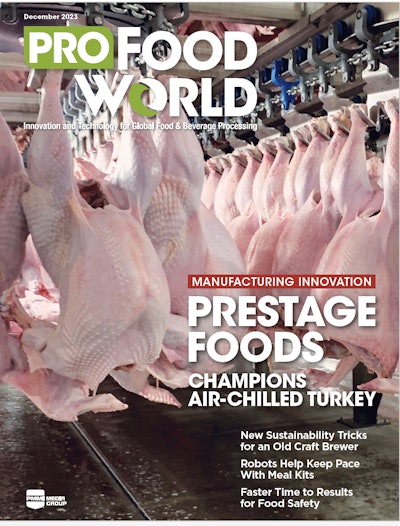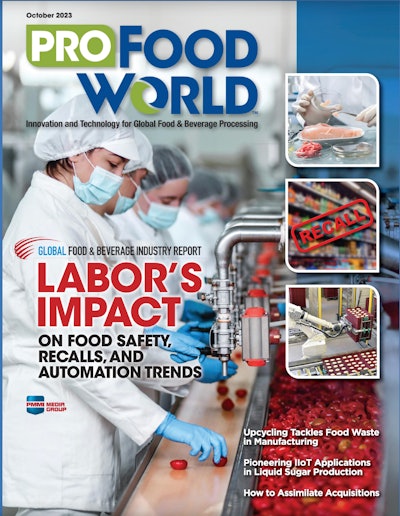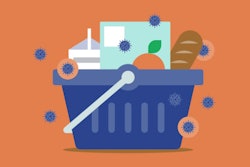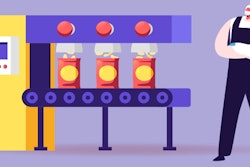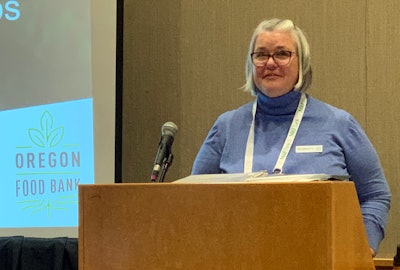
Sharon McFadden has a confession to make. During the nearly two decades that she ran the quality assurance program at Western Family Foods, she met the question of whether the food supplier could donate food to the local food bank with a hard no.
“That was because I was protecting our brand, and I didn’t understand food safety qualifications or anything related to food banking,” she says. “So it was a hard pass straight to the dump.”
Fast forward, and today McFadden is the strategic sourcing manager for the Oregon Food Bank. She understands a whole lot more about all the steps the organization goes through to ensure food safety.
“I realized they have really tight food safety standards. They are inspected by the FDA and the Oregon Department of Ag and the USDA—and they can protect brands,” McFadden told attendees this week of the Food Northwest Process & Packaging Expo in Portland, Ore. “I’ve done a 180. So I’m here to tell you, if you work in the food industry, you can donate; it doesn’t need to go to the dump.”
McFadden is also today living in a world trying to come to terms with high levels of food waste, all while facing increasing concerns of food insecurity among a growing population.
In the U.S., food waste is estimated at 30 to 40% of the food supply, according to the U.S. Department of Agriculture (USDA), with spoilage occurring at every stage of the production and supply chain. Meanwhile, almost 13% of US households were food insecure at least sometime during 2022, the USDA notes.
At the state level, Oregon Food Bank saw 1.9 million visits last year to food assistance sites throughout its network. That’s a 14% increase over the previous year. One in 10 people face hunger in rural, urban, and suburban communities throughout the state, McFadden says.
A variety of partnerships and products
The Oregon Food Bank looks to fill those needs from a long list of partner types: “Fishers, ranchers, growers, processors and manufacturers, retailers, distribution centers, co-packers, transportation companies, packaging companies, cold storage, frozen storage, universities, commodity commissions… You get the point. There’s a lot,” McFadden says.
There’s just as long a list of the types of things the food bank is looking for. “We are focused on produce, protein, dairy, and pantry staples. But quite honestly, we’ll take just about anything. So call,” she says. “We can take retail-ready products, and we can take industrial-sized products. We deal in truckloads. We deal in full pallets. Super sacks of grain, onions, potatoes, flour—we can take all of that. Bulk totes of frozen fruits and vegetables? Yes. We handle fresh produce. Right now we’re removing anywhere from 300,000 to 400,000 lb a week of fresh produce through our network. And it is flying out the door. We have the ability to repack frozen.”
McFadden told a story of how Pacific Foods helped the Oregon Food Bank contend with donations they received in containers that were larger than they could handle. “Oregon Food Bank used to have all these generous donations of frozen items that were in 5-gallon pales and 55-gallon drums. And I can’t hand out a 5-gallon pale of anything to anybody, let alone a 55-gallon drum,” she says. “But Pacific Foods has an amazing product development team, and they were willing to donate line time.”
In addition to donating the line time, Pacific Foods’ employees were given the option of donating their labor on the line as well. “So once a month, the product development team would take our laundry list of random stuff we had in cold storage, and they would formulate a soup and then donate line time and donated labor,” she says. “They would actually package it up into a custom soup for us, and then we’d bring that soup back to Portland and our volunteers would label it, and the soup would be distributed across the state of Oregon.”
Yes, they take that, too
Getting back to the point that McFadden made initially, brand owners might worry about protecting their brands, but the food bank is prepared to deal with all manner of quality concerns. “Date codes are a big deal if you’re in QA. You’re always terrified. These are ‘best by’ date codes. If it’s still good, if it’s still safe, we can still distribute it,” she explains. “If your QA department still feels it’s got another six months on it, we can distribute it. If it has an expiration date and we’ve hit it, but we can freeze it, it’s still good, we can still distribute it; we’ll distribute it frozen.”
The food bank is willing to get deep in the weeds with donating companies to figure out solutions, McFadden says, noting that they will even fix labeling. “I can’t tell you how many companies—somebody accidentally labels something as organic and it’s not. Or they forget to add garlic or salt or something. We can fix that. We can relabel it,” she says. “We can also label things that are not labeled, like bright stock cans. If you have some stuff that got aged out and nobody decided to buy the chicken noodle soup that they said they were going to buy truckload quantities, and it’s not moving and it hasn’t been labeled, we can attach a label to it and do that work for you.”
It’s not all just about donating food, either. “We are looking for boxes,” McFadden says. “If you have boxes the shape and size of a case of wine or a 12-pack of beer, we are super interested. Because we take all those frozen vegetables or those cans and label them. But we’ve got to put them in a box so we can palletize it and get it out the door.”
Of course, there are benefits from all of these donations—supporting your community, for example, or getting federal and maybe even state tax credits. “Think about what you’re paying money to store. What are you paying money to dispose of? What are you doing with that product that the customer’s disappeared or has gone bankrupt or is just sitting in the back part of Lineage Logistics? That costs money,” McFadden concludes. “You could easily turn that around into an amazing donation. You’re going to get a great tax credit for it, and you’ll have a great story for your social media.”
